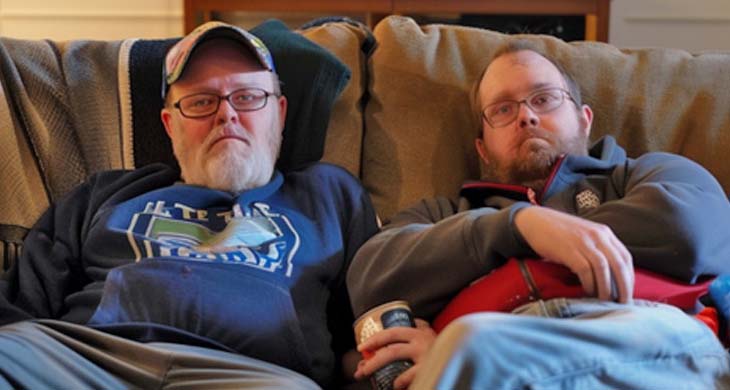An ordinary evening turned into a battle over outdated gender roles. It went so far that my children and I had to go without dinner. My husband and father-in-law’s beliefs clashed with our modern family dynamics, but they were in for a lesson they would not forget.
My husband Marcus comes from this super traditional family and is the oldest of two kids. His mom’s a stay-at-home mom, and his dad was the sole provider.
But our family is the COMPLETE opposite. Instead, we both work and share our duties at home. My father-in-law just HATES it. He despises that I work and that my husband helps out at home.
Before my in-laws came to stay with us, my relationship with them was a mixed bag. My mother-in-law, though shy and reserved, was kind to me.
She never openly criticized our way of life, but her silence spoke volumes. She seemed scared to voice any opinion, always deferring to her husband’s rigid beliefs.
My father-in-law, on the other hand, was a different story. He never missed an opportunity to express his disdain for our modern lifestyle. During family gatherings, he would make snide remarks about how a woman’s place was at home, not in the workforce.
He believed that a man should be the provider and the head of the household, and he didn’t shy away from making his views known. Despite his harsh opinions, I tried to maintain a civil relationship with him for the sake of my husband.
We had several heated discussions over the years, but I always managed to keep my composure and stand my ground. I believed that respecting each other’s differences was the only way to keep the peace.
So, when my in-laws decided to stay with us for two weeks, I knew it would be challenging. Our usual routine worked well for us. I made breakfast, we all ate lunch out, and my husband cooked dinner.
It was a system that balanced our responsibilities and kept our household running smoothly. Yesterday, I got home from work, exhausted and STARVING. I quickly greeted everyone and went for a pre-dinner shower.
When I came back down, I expected dinner to be ready. But there was NOTHING. The kids kept asking when we were having dinner, and I asked my husband, but he wouldn’t even look at me.
Then his FATHER chimed in, “Sarah, your husband didn’t cook anything. You need to stop being LAZY and do your duty as a wife and cook for your family, AS A NORMAL WOMAN.”
I was SPEECHLESS, and my husband just sat there, NODDING, avoiding eye contact. I SAW RED. They both needed to learn a lesson.
“Really?” I started, my voice trembling with anger. “So, I should just come home after a full day of work and start cooking because that’s my duty?”
My father-in-law scoffed. “That’s right, Sarah. A woman’s place is in the kitchen.”
My mother-in-law sat quietly, too scared to say a word to her husband.
I turned to my husband. “And you agree with this?”
He mumbled, “Well, it wouldn’t hurt if you took better care of the home and kids. Tradition is tradition.”
“Tradition?” I shot back. “Tradition won’t allow a man earning thirty-five thousand to support a family of five. You are too broke to be so sexist.” I saw tears well up in his eyes, but I wasn’t done.
Turning to his father, I said, “And you! When was the last time you took your wife to a restaurant? Do you even know what it costs to run this household?”
“Let me enlighten you. That car you drive, the one you’re so proud of? I paid for it because my income is bigger than your son’s. He asked me to cover it.”
My father-in-law’s face turned crimson. “That’s not true,” he stammered.
“It is true,” I replied. “And now, since my hard-earned money went to that car, it’s only fair that I use this month’s payment to take your wife and my kids out for dinner. Let’s see you and your son figure out the car payment, like real men.”
Without waiting for a response, I took my mother-in-law and kids to a nice restaurant. They deserved a break. We enjoyed a wonderful meal, and my mother-in-law finally relaxed, thanking me repeatedly.
Back at home, I knew the men would have to face the reality of their outdated beliefs. They needed to understand that respect and partnership are what make a family strong.
The next morning, there was a noticeable tension in the air. My husband and his father were unusually quiet during breakfast. My husband finally broke the silence.
“I’m sorry for what happened,” he said, his voice barely above a whisper. “I realize now how much I hurt you. I let my father’s outdated views influence me.”
His father, sitting beside him, looked uncomfortable but spoke up as well. “I didn’t realize how much times have changed. I’m sorry too. I’ve always seen things a certain way, but I understand now that it’s not right.”
My mother-in-law, sitting quietly, nodded in agreement. I appreciated their apologies, but actions speak louder than words. I needed to see a change.
Over the next few days, both men made a visible effort to be more involved and respectful. My husband took back his duties without complaint, and his father helped where he could, even though it was clear he was uncomfortable at first.
One evening, as we were all preparing dinner together, my father-in-law approached me. “I want to thank you,” he said. “You opened my eyes. I see now that respect and partnership are crucial. I will try to do better.”
His sincerity touched me. “Thank you for understanding,” I replied. “It’s not about being right or wrong, but about supporting each other.”
From that point on, the atmosphere in our home improved significantly. My husband and his father worked together to ensure that everyone felt valued and respected. My mother-in-law, with a newfound confidence, started to speak up more, expressing her thoughts and needs.
In the end, it wasn’t just about teaching a lesson. It was about growing together as a family and breaking free from outdated traditions that no longer served us. Our journey had its challenges, but it brought us closer and made us stronger.
In Sarah’s story, she was courageous enough to stand up to her father-in-law. But in the following one, Carmen feels guilty about doing the same thing. She questions whether teaching her in-law lesson was the right move.










